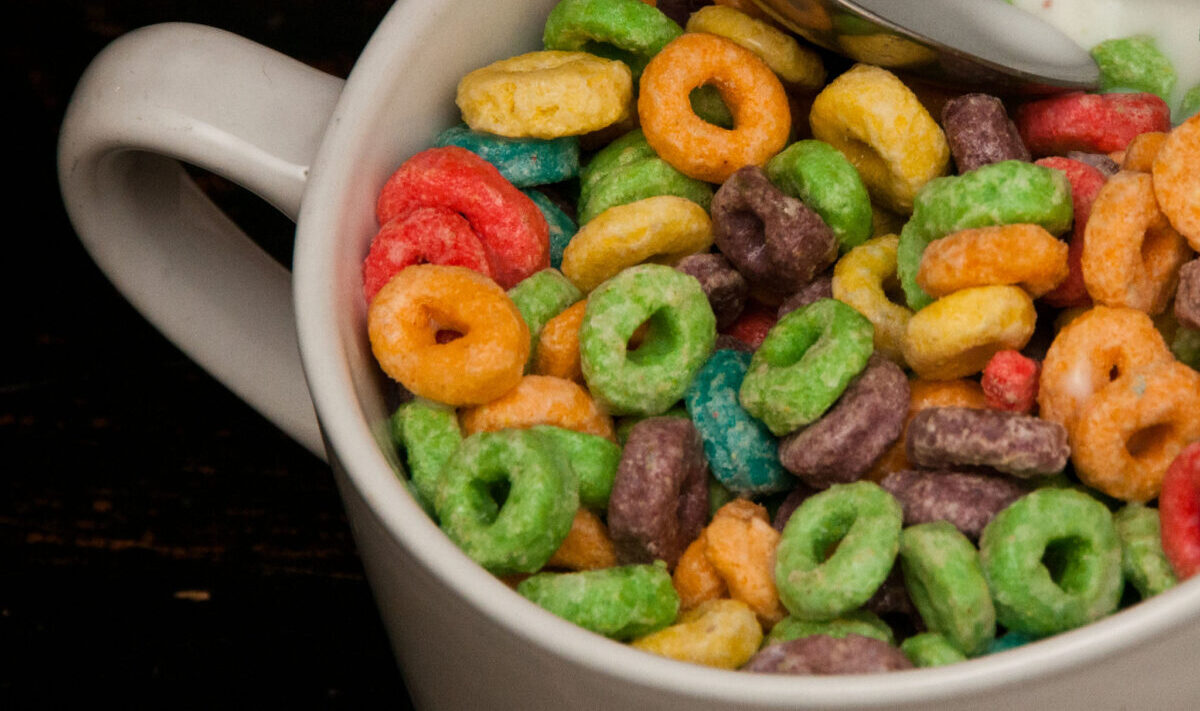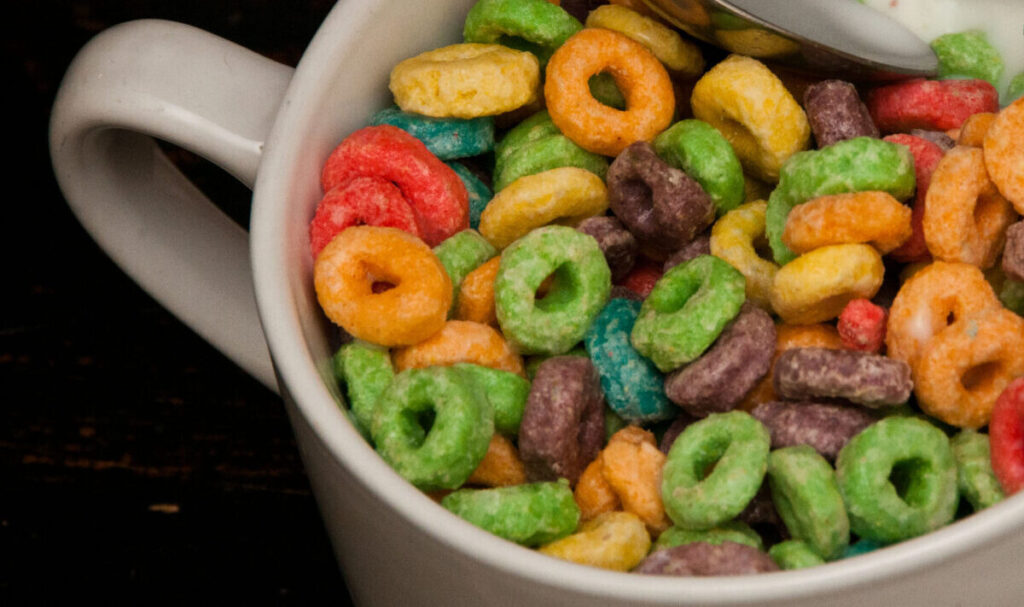Originally Authored at TheFederalist.com

In the uphill effort to make America healthy again, Americans must not confuse “healthier” with “healthy.” Foods depleted of all kinds of estrogenic additives might be better for us, but that doesn’t suddenly make fat-free boxes of sugar health foods.
As outlined in my new book with conservative wellness writer Gina Bontempo, the nation’s twin crises of obesity and chronic disease were caused by myriad lifestyle changes, but chief among them is the industrialization of America’s food supply and the embrace of the low-fat diet. Carb-loading childhood cereal bowls with sugar and low-fat milk is still not going to solve the crisis, even if Froot Loops are any healthier tomorrow than they are today.
[READ: Americans Want To Stop Being Fat And Unhappy But Don’t Know How]
Nevertheless, The Wall Street Journal published a story Thursday on how Kellogg’s Froot Loops has “landed at the center of U.S. food politics.”
“They are a half-inch big, rainbow-colored and crunchy — and at the center of a political food fight,” the Journal reported, with one of Froot Loops’ “highest-profile critics,” Robert F. Kennedy Jr., threatening to strip artificial ingredients out of the cereal mix.
“They get brighter colors in Froot Loops, but it’s literally poisoning our kids,” Kennedy said on Fox News in September.
Kennedy, who ended his own independent presidential campaign to endorse former President Donald Trump, has captured the nomination for secretary of Health and Human Services (HHS). If confirmed, Kennedy would lead a nearly $2 trillion dollar department with jurisdiction over the nation’s most powerful regulatory agencies, including the Food and Drug Administration (FDA).
According to the Journal, the FDA “has approved nine synthetic color additives for use in food, and said they are safe when used in accordance with FDA regulations.”
“The FDA said the totality of scientific evidence shows that most children experience no adverse effects from eating foods with the added colors, though some evidence suggests certain children may be sensitive to them,” the paper reported.
The FDA’s approved list of food additives determined “generally recognized as safe,” however, is not exactly backed by the rigorous science Americans might think. Dr. Robert Lustig, a pediatric neuroendocrinologist and professor at the University of California San Francisco, wrote about the deficiencies of the FDA Generally Recognized as Safe (GRAS) list in his 2021 book, Metabolical.
“Before 1997, a food company had to petition the FDA to get a substance on the GRAS list. Now it’s privatized and there’s no centralized list,” Lustig said. “All that’s required is a meeting of scientists (paid by the company — talk about conflicts of interest) to sit in a room and declare a substance is GRAS.”
Worse, Lustig added, “They don’t even have to tell the FDA they did it.”
“We know that at least three thousand items on the GRAS list have never undergone review; and it’s estimated that for at least one thousand, the FDA wasn’t even notified,” Lustig wrote. “Worse yet, the FDA doesn’t systemically reconsider the safety of GRAS substances as new information becomes available.”
But while there’s good reason to be suspicious of the additives “generally recognized as safe” contaminating hyper-processed food, added sugar alone is a primary culprit of chronic illness and is more addictive than cocaine. Canadian Froot Loops might be the superior brand of processed cereal, but they still come packed with 14 grams of sugar per serving.
“Recent data implicates added sugar as a cause of cardiovascular mortality, even after controlling for total calories and obesity,” Lustig reported.
Kennedy outlined a list of serious proposals to “Make America Healthy Again” for The Wall Street Journal in September. Items include the reexamination of popular pesticides, the reformation of federal food subsidies, and the elimination of junk food purchases on welfare stamps. Perhaps reviewing the additives on the FDA’s GRAS list should be added to the agenda if Kennedy were to be confirmed as HHS secretary.
But even as the Trump administration does its part to reinvigorate the nation’s health, Americans should not believe the federal government can or will do the hard work for them. Whistleblowers could blow the lid on tobacco and cancer, for example, but at the end of the day, people still have to quit smoking.
